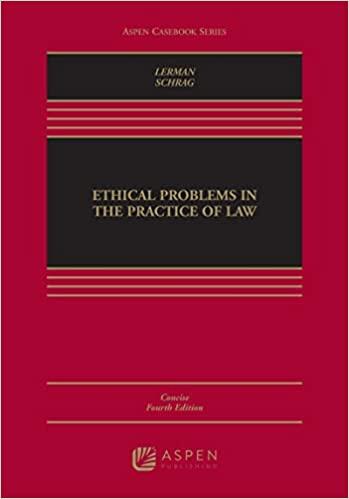Question
As a disclaimer, this assignment deviates from the normal material for this chapter. However, given its relevancy and how it directly impacts anybody traveling internationally,
As a disclaimer, this assignment deviates from the normal material for this chapter. However, given its relevancy and how it directly impacts anybody traveling internationally, I thought it appropriate to present this question.
Tom Cruise gets to travel the world in style. In fact, he gets to take private jets anywhere he wants to go around the world.
As for the rest of us, we take commercial, flying in Coach and at times stuck in the middle seat.
But irrespective of how you travel, governments around the world don't care and make all of us go through customs. No special treatment there.
In fact, every year, tens of millions of travelers arrive at U.S. borders, where they are subject to a search. Of these travelers, about 12 million undergo a secondary screening, and approximately five thousand of these screenings involve an electronic device. About three hundred devices, namely laptops, tablets, and smartphones, are sent to the Immigration and Customs Enforcement forensics laboratory in Fairfax, Virginia, for further examination.
The U.S. government has historically had broad power to search travelers and their property when they enter this country. That power includes the right to inspect papers and other physical documents in the possession of anyone entering the United States, including U.S. citizens.Increasingly, however, instead of being carried in physical form, documents are carried on the hard drives of laptop computers, in tablets, or in smartphones. In fact, a person might have thousands of photos, e-mails, video clips, and documents on the hard drive of a laptop.
Does the government's power to conduct border searches give it the right to rummage through all of the data on an electronic device?
A Legal Challenge to Extensive Searches of Electronic Devices
When Pascal Abidor, a Ph.D. student who has dual U.S. and French citizenship, traveled by train from Canada to New York, U.S. Customs and Border Control agents pulled him aside and required him to log on to his computer. They then examined much of its contents. Abidor was released after a few hours, but the Department of Homeland Security kept his laptop for eleven days.Abidor challenged the search. His complaint alleged that the suspicionless search of U.S. citizens' electronic devices at international borders violates their constitutional right to privacy. The lawsuit was dismissed when a federal court concluded that Abidor lacked standing to challenge the government's border search policies.
Routine versus Forensic Searches of Electronic Devices
In another case, Ali Saboonchi and his wife were stopped at the border on returning from a day trip to the Canadian side of Niagara Falls. Saboonchi was a dual citizen of the United States and Iran. His name had been flagged in the Homeland Security database because of information from the FBI concerning inquiries he had made about specialized technology with possible medical or military applications. Customs officials performed a secondary search of Saboonchi's vehicle and questioned him and his wife. The officials allowed the couple to reenter the country, but seized two of Saboonchi's smartphones and a flash drive and sent them to Virginia for further testing.
A week later, customs officials returned Saboonchi's electronics. The government then filed criminal charges against Saboonchi in federal court for violating U.S. export restrictions on trade with Iran. The indictment alleged that he had sold specialized equipment to a company in the United Arab Emirates that was linked to a company in Iran. His digital devices had contained contact information about the companies involved, along with other evidence.
Saboonchi argued that the evidence had been illegally seized and that the information obtained from his electronic devices should be excluded from trial. The court recognized a difference between routine border searches and forensic border searches, which involve experts using specialized software. Forensic searches, according to the court, require reasonable suspicion. Nevertheless, the court concluded that the government had reasonable suspicion that Saboonchi was involved in violations of export restrictions.
Question Presented
Do you agree with the court's interpretation of the law with respect to Abidor and Sboonchi? What are some steps that businesspersons (such as Tom Cruise) can take to avoid issues at the border with respect to the contents of their electronic devices?
Step by Step Solution
There are 3 Steps involved in it
Step: 1

Get Instant Access to Expert-Tailored Solutions
See step-by-step solutions with expert insights and AI powered tools for academic success
Step: 2

Step: 3

Ace Your Homework with AI
Get the answers you need in no time with our AI-driven, step-by-step assistance
Get Started


